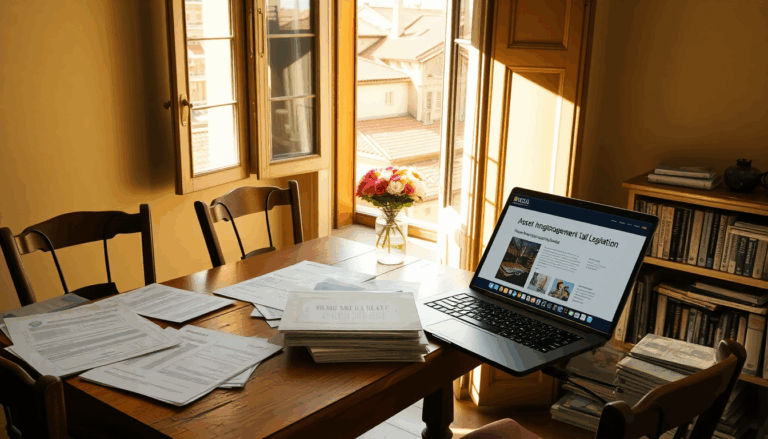Owning a second home in Italy and renting it out can be an exciting opportunity to generate additional income. But before you dive in, it’s essential to recognize the range of fiscal responsibilities that come with this venture. From managing the IMU (Municipal Property Tax) to understanding IRPEF (Personal Income
Tax), property owners must navigate a complex landscape of taxation and compliance to avoid penalties and maximize their profits. So, are you ready to explore this world?
Navigating the Tax Landscape
When it comes to renting out a second home, owners face several taxes that can significantly impact their earnings. First on the list is the IMU, which applies to properties not classified as primary residences. The amount owed is based on the cadastral
income and varies according to the rates set by local municipalities, which have been on the rise in recent years. It’s important to keep in mind that even if your property is rented out, the IMU is still a tax obligation you can’t escape.
Then there’s the TARI (Waste Tax), typically billed to the tenant. However, if your property is vacant or used only sporadically, you might find yourself responsible for this expense. Some
municipalities even offer incentives for rental properties leased for short periods, making it beneficial to stay informed about local regulations. Have you thought about how these expenses could affect your bottom line?
Income Tax Considerations
Now, let’s not forget about IRPEF, which applies to the rental income you earn. Property owners can choose from various calculation methods, such as the ordinary taxation regime or the flat-rate tax option known as cedolare secca. Which option do you think is more advantageous?
The cedolare secca is an optional taxation regime that can be quite beneficial for property owners. This choice allows for a substitute tax that replaces both the IRPEF and local and regional surcharges. By opting for cedolare secca, you also get a break from paying stamp duty and registration tax on rental contracts. This administrative simplification is a significant advantage, especially if you’re managing multiple properties. Isn’t that appealing?
Practical Implementation and Compliance
In my experience, informed decision-making can make a significant difference. As of 2025, the rules surrounding cedolare secca remain largely unchanged, offering a reduced rate of 10% for agreed-rent contracts. However, it’s crucial to adhere to the established criteria and use the correct contractual models to benefit from this option. Choosing between cedolare secca and ordinary taxation requires careful evaluation based on your overall income and the type of rental contract involved. What’s your preference?
A critical aspect of managing rental properties is the registration of lease contracts, which must occur within 30 days of signing at the Revenue Agency. Registration is essential not just for tax validity but also allows you to deduct property-related expenses. Staying organized with documentation about your rentals is crucial, including payment receipts, tenant communications, and tax documents. This organization will ease your income tax declaration process and could come in handy during fiscal audits. Have you ever struggled with bureaucracy?
Staying Informed and Seeking Professional Guidance
Moreover, it’s vital to pay attention to local regulations, as there may be additional obligations or specific taxes for second homes, especially in tourist areas. Consulting industry professionals or a tax assistance center can be invaluable for effective tax management, particularly for those with complex income situations or multiple rental properties. Have you considered reaching out to an expert to clarify your doubts?
Renting out a second home in Italy can be an appealing way to generate income, but it requires careful and informed tax management. Understanding taxes like IMU, TARI, and IRPEF, along with options like cedolare secca, is crucial. Only through proper planning and adherence to regulations can you ensure not just the profitability of your investment but also the protection of your assets from potential legal issues. So, are you ready to embark on this journey of managing your second home?

